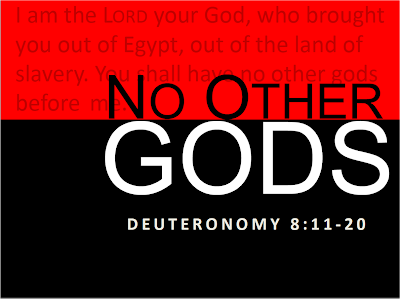SPEAKER: DAVID TAN
TEXT: 1 THESSALONIANS 1:8-10
SUMMARY:
What exactly do we mean by serving God?
Serving God is a mandate and responsibility In the book of Genesis 2 the retelling of creation informs us that God created Man and placed him in the middle of Eden. “Then the LORD God placed the man in the Garden of Eden to cultivate it and guard it.” (v15)
Subsequently, when God gave Adam a ‘suitable companion to help him’ (v18) - or a ‘helpmeet’ in older translations - it cannot simply be for narrow mutual benefit alone. It is more appropriate to understand this to be God’s plan for Adam and Eve to work and serve God together, to care, work, manage, nurture, make the world flourish and grow in beauty to the glory of God.
It is possible to infer that the command to multiply and have children was so that there would be more helpers and gardeners. Therefore followers of Jesus are not to live for themselves: we are gardeners, carers, workers and stewards, doing good for God’s creation and the larger community.
Serving God is a specific pattern of outward behavior This outward behavior is an expression of inner transformation. To serve God is first to turn away from unbelief and to turn towards the Living God. We see this in the example of the Thessalonian Christians:
1 Thessalonians 1:8-10 For not only has the word of the Lord sounded forth from you in Macedonia and Achaia, but your faith in God has gone forth everywhere, so that we need not say anything. For they themselves report concerning us the kind of reception we had among you, and how you turned to God from idols to serve the living and true God, and to wait for his Son from heaven, whom he raised from the dead, Jesus who delivers us from the wrath to come.These believers expressed their service to God as faithful witnesses to the gospel, being dedicated in the face of persecution, and by living exemplary lives of holiness. This is clearly not a shallow modification of behaviour but a deep work of the Holy Spirit.
In another reference, Paul commended these same believers for their sacrificial lifestyle: "...but their joy was so great that they were extremely generous in their giving, even though they are very poor. I can assure you that they gave as much as they could, and even more than they could. Of their own free will they begged us and pleaded for the privilege of having a part in helping God's people in Judea." 2 Corinthians 8:2-5
Serving God is an attitude of submission The words service, serve, servant, carry varying shades of meaning in Scripture. Sometimes the word refers to any form of help that is generally offered to another person. Other times it refers to a specific duty as in Acts 6:1-3, where we first read about deacons and their ministry of ‘serving tables’.
The point is, to believe in God is to submit and serve him exclusively. Apostles like John, Peter and Paul acknowledge that they are God’s servants. “Paul, a servant of Christ Jesus, called to be an apostle and set apart for the gospel of God” Romans 1:1 This is the heart attitude of a servant who knows his God, not a title or social class.
Interestingly, in John 15:15 Jesus said to his disciples, “No longer do I call you servants, for the servant does not know what his master is doing; but I have called you friends, for all that I have heard from my Father I have made known to you.” All believers serve in the joyful comfort and security of friendship with Jesus.
Serving God is our spiritual worship “By the mercies of God, to present your bodies as a living sacrifice, holy and acceptable to God, which is your spiritual worship.” Romans 12: 1
God’s gift of salvation in Jesus leads to a new life. A life of righteousness is now our act of worship. “Spiritual worship” or act of worship carries the same sense as ‘service’ in the original language. Above all, service must include righteous living and the pursuit of holiness.
Finally, we are confronted with a choice: Judas and Peter finished differently even when both were in the presence of the same Lord. Only one served God right to the end. If we call Jesus King and Lord, then we are drawn to submit to him and obey him.
Colossians 3:23-24 “Whatever you do, work heartily, as for the Lord and not for men, knowing that from the Lord you will receive the inheritance as your reward. You are serving the Lord Christ.”We all serve somebody – whom are you serving?







